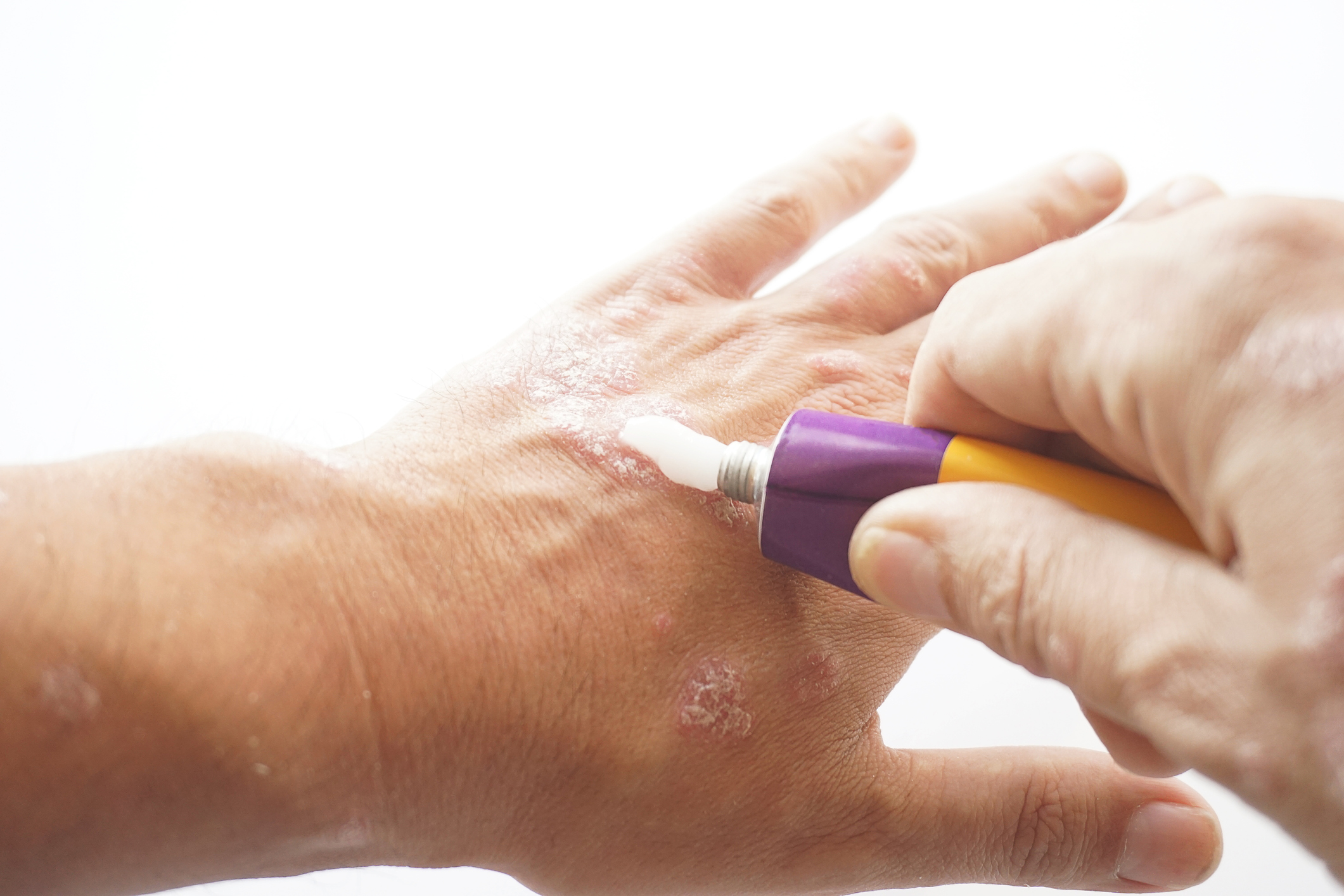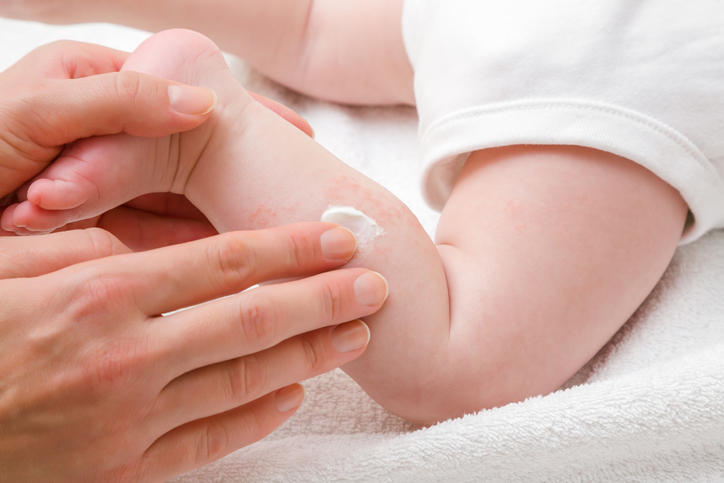If you have eczema, finding the right treatment can help living with the condition more manageable.
Eczema treatment aims to control the rash and itch, reduce any damage to the skin caused by scratching and prevent flare-ups.
But there are many ways to treat eczema, and finding the right treatment will likely depend on how severe your symptoms are, the type of eczema you have, and your age and medical background.
You may need to combine medication with self-care remedies to either keep symptoms at bay or deal with symptoms you experience during a flare-up.
If you have eczema, you should see a doctor to discuss the best treatment. But here, we outline some of the key treatments available.
Treatments for mild eczema
In most cases, if your eczema is mild a doctor may prescribe a moisturising cream or ointment (emollient) combined with a weaker ‘steroid’ or corticosteroid cream, ointment or gel (topical corticosteroid).
These are applied directly to the affected area and should be used regularly to prevent your skin from drying out -- often several times a day, depending on how dry your skin is.
Topical corticosteroids are available in varying strengths, and they are used to reduce itchiness and inflammation during a flare-up.
A mild topical corticosteroid such as hydrocortisone, or a moderate strength option (like clobetasone butyrate) may be prescribed to you. Once applied to the affected area, you should see improvements in your symptoms within a few days.
However, topical corticosteroids should always be used sparingly. If used for too long, on the wrong part of the body (such as the face), or the dose is too strong this can lead to thinning of the skin.
A doctor will prescribe one that works best for you and explain how to use it.
If you’re scratching a lot, speak to a pharmacist about bandages or wearing cotton gloves while you sleep. The gloves can allow moisturiser to soak in and reduce the risk of scratching during the night.

Treatments for severe eczema
If your symptoms are more severe, a doctor may prescribe one or more of the following:
- a moisturiser (emollient) -- used regularly and in place of soap to prevent your skin becoming dry
- a stronger ‘steroid’ or corticosteroid cream, ointment or gel (topical corticosteroid) to help the skin heal and reduce inflammation
If you need to use a stronger topical corticosteroid regularly, see a doctor so they can check you’re applying the right amount.
If your symptoms don’t respond to topical steroids, a doctor may prescribe a different topical ointment (tacrolimus) or cream (pimecrolimus). A doctor may also prescibe these if your eczema is affecting a part of the body where the skin is more sensitive to the side effects of steroids, such as the face or eyelids. These oitments and creams work by suppressing the immune system.
Alternatively, depending on the type of eczema and nature of your symptoms, you may be given one or more of the following:
- antihistamine tablets -- to relieve itchiness, particularly if the itchiness is disrupting your sleep
- antiseptic cream -- if the skin is infected. This should not be used continuously, as it can dry the skin
- antibiotics -- if the skin is infected due to scratching
- cotton bandages to place over affected areas
In rare cases, oral (tablets) corticosteroids may be prescribed for a short period of time for severe eczema symptoms. But due to possible side effects with repeated or prolonged courses of oral steroids, a doctor may refer you to a skin specialist (dermatologist) instead for treatment.
When might you need to see a specialist?
A doctor may refer you to a dermatologist if:
- your symptoms are severe
- the treatments listed above are not enough to control your eczema
- it’s not clear what’s causing your eczema
- it’s not clear what type of eczema you have
If it’s necessary, a dermatologist may offer you allergy testing , as other conditions such as allergic contact dermatitis can look like eczema.
Allergic contact dermatitis occurs when you come into contact with something that causes you to have an allergic reaction, like the metal nickel or a washing detergent.
The dermatologist may also suggest ultraviolet light treatment (phototherapy) to help reduce inflammation, or prescribe a strong topical corticosteroid for your eczema.
Self-care remedies for eczema
It’s important to apply a moisturiser daily -- especially after showering, taking a bath or washing your hands -- to help prevent dry and itchy skin. This should limit the need for medication and the use of stronger, steroid creams.
But there are other things you can do to help manage the condition, such as minimising stress and wearing loose, comfortable clothing made of natural fabrics like cotton.



